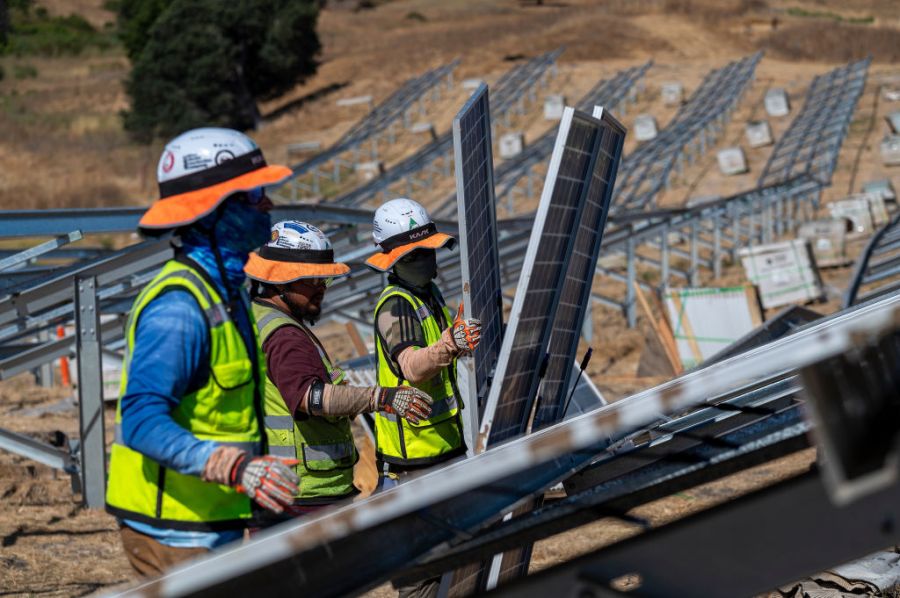Just In News
Nations can achieve the ambitious goals of the COP28 climate conference and triple clean energy capacity by the end of the decade if they clear regulatory bottlenecks and modernize the grid, according to a report published Tuesday by the International Energy Agency (IEA).
In the report, the IEA said the 200 nations that participated in the Dubai summit could achieve its commitments, which include net-zero emissions by 2030 as well as tripling renewables. It attributed this to a variety of factors, including government policies creating incentives.
However, it added, the added capacity alone will not automatically cut consumer costs or reduce fossil fuel emissions. To take full advantage, participating nations must modernize the equivalent of about 15.5 million miles of grid and multiply current battery storage by 15 for a total of 12 gigawatts, according to the report.
In the report, the IEA calls for a country-by-country approach to these goals, rather than seeking to apply a one-size-fits-all strategy to different countries that may be at varying stages in the process.
For example, if countries that still use predominantly traditional cookstoves rather than those using renewable energy for cooking were to transition over, it could save energy equivalent to the annual demand of Brazil.
In wealthier economies, meanwhile, electricity use creates the greatest opportunity for efficiency improvements. In those cases, the authors wrote, increased use of electric vehicles and heat pumps will be a major driver for those improvements.
“As this new IEA report shows, the COP28 energy goals should lay the foundation for countries’ new climate targets under the Paris Agreement – they are the North Star for what the energy sector needs to do. And further international cooperation is vital to deliver fit-for-purpose grids, sufficient energy storage and faster electrification, which are integral to move clean energy transitions quickly and securely.”
Energy & Environment Read More
Author Profile
Latest entries
 HeadlinesSeptember 25, 2024Missouri, Texas execute 2 inmates over killings of woman, infant as more expected in other states
HeadlinesSeptember 25, 2024Missouri, Texas execute 2 inmates over killings of woman, infant as more expected in other states HeadlinesSeptember 25, 2024Migrant crime crisis comes to Nantucket, Martha's Vineyard, playgrounds for rich and famous
HeadlinesSeptember 25, 2024Migrant crime crisis comes to Nantucket, Martha's Vineyard, playgrounds for rich and famous HeadlinesSeptember 24, 2024The Midwest could offer fall’s most electric foliage but leaf peepers elsewhere won’t miss out
HeadlinesSeptember 24, 2024The Midwest could offer fall’s most electric foliage but leaf peepers elsewhere won’t miss out ScienceSeptember 24, 2024Antidepressant may treat deadly brain cancer
ScienceSeptember 24, 2024Antidepressant may treat deadly brain cancer

